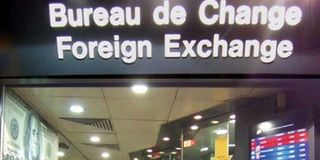Forex dealers are back in the game

Arusha. Money changing at the Namanga border is back in the hands of hawkers and shopkeepers after the recent closure of forex shops.
Transactions are more pronounced on the Kenyan side of the busy border post where young men are openly offering the service to anybody crossing the boundary.
On the Tanzanian side, business is thriving in obscure backyards, mostly in shops and unmarked premises.
“Unofficial currency exchange is here, but it’s not being done in the open as is the case on the Kenyan side,” remarked a Tanzanian trader at the border town.
He said since the closure of the only licensed and privately-owned forex shop near the terminal where commuters board Arush-bound buses, those seeking to change money are crossing the border to Kenya.
“You can hardly see such transactions here.It is illegal and people are afraid of the authorities,” he told The Citizen on Tuesday.
There are two licensed forex shops on the Tanzanian side both run by the NMB Bank. One of them is at the bank’s Namanga branch and another within the jointly operated One Stop Border Post (OSBP) building. Currency exchange at the NMB-operated bureau de change inside the border control building is largely serving visitors coming into Tanzania from abroad, including tourists.
Businesspeople plying their trade between Tanzania and Kenya as well as truck drivers preferred changing their money at the hawkers and shops on the Kenyan side where there are no restrictions.
“Ordinary people like truck drivers change their money on this side because there are no hussles as is the case just across the border,” said an elderly man in Kenya.
Inside his makeshift structure, a few metres from ‘no-man’s-land’, he had been transacting since 1989 “without any bother from the authorities”.
As of Tuesday, one KSh was selling at between Sh22.000 and Sh22.100, and would fluctuate depending on the time of the day and where the money is exchanged.
Demand is high among Tanzanian and Kenyan cross border travellers who need the respective currency of the countries of destination. The use of the two currencies is, nevertheless, unrestricted in the sprawling town on both sides of the border. “We also buy US dollars, Euros, British Pound, South African Rand and other major currencies but not much from other East African states,” said the elderly man.




